The last wild rivers of Europe flow on the Balkans. Now the destruction by Mini-hydroelectric power plants threatens them. Economically hardly viable, but will be funded by the EU. River-local residents are fighting back.
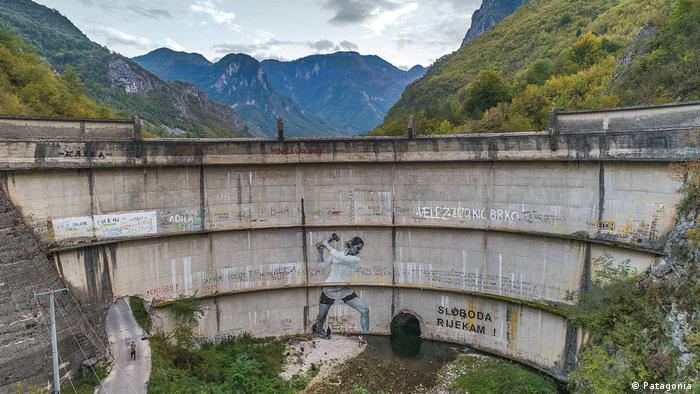
One Morning the construction site was not there. “At first none knew in our village, what there is being worked on,” says Tahira Tibold, mayor of the Central Bosnian municipality of Kruščica. The river, which took its Name from the small village, is situated in a conservation area and supplied to several places with drinking water. Only after days it became clear that there is a congestion stage for a so-called Mini-hydroelectric power plant 10 MVA will be built.
Mini-hydropower plants are plants with up to 10 Milli-volt-amperes (MVA) of power. They work on the same principle as large hydropower plants, only that they be built in small rivers. And in such a rivers, there are in their original, natural Form in Europe only in the Balkans.
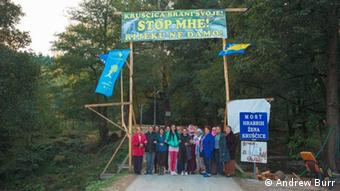
Women’s resistance against Mini-hydro power plants along the Kruscica
As the inhabitants of Kruščica realized, what is “your river”, you immediately realized that the construction could mean the end of their previous way of life. Therefore, the women of the place occupied on the 24. August of 2017, the only access to the construction site. “50 of us together, chained at night on the bridge,” says Tahira. “The next Morning, 75 police officers, including members of a special squad appeared and cleared the way with violence.”
However, although some of the Occupiers were injured during the evacuation, not the Locals. On the contrary: the police officers were gone again, and continued the actions on the bridge – and the citizens of Kruščica complaint made against the operator of the construction site.
Almost a year later, in June 2018, the competent court annulled in the middle of Novi Travnik, the approval for the construction of the hydropower plant. After Conviction, the judge of the affected population in the approval process was neither sufficiently informed nor has been involved.
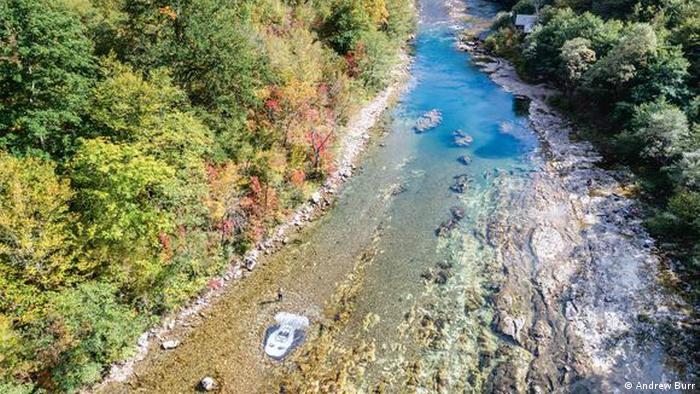
Nowhere in Europe there is water still so many untouched Wild as in the Balkans
The Activists – from the media since the beginning of their actions, “The brave women of Kruščica” called to be skeptical and to keep the bridge around the clock in the eye. “We will stop only, if the contract with the Investor for the power plant null and void,” said mayor Tibold.
“The authorities are lying”
“Actually, the water of the rivers flows for all. But from the Moment in which the concession for the use of someone is forgiven, it flows only for the concession holder. This is a privatisation of the common good – and in the Balkans, the largest such privatization in Europe is currently taking place,” warns Ulrich Eichelmann of the NGO RiverWatch from Vienna.
“The construction of Mini-hydroelectric power plants threatens the last free rivers in Europe. The 3,000 small dams are planned or already under construction, from Slovenia to Greece”, so Eichelmann. In cooperation with the German environmental Foundation EuroNatur and local partners in the countries of the Balkans, he directs the campaign “Save the blue heart of Europe”, in order to prevent the wave of destruction.
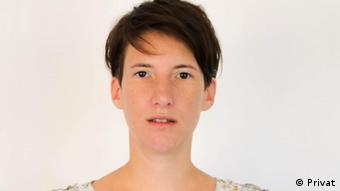
Jelena Ivanic, centre for environment, Banja Luka
As a reason for the mass granting of concessions is that private interests are preferred to the Balkans to the public. “The local authorities here do not or are not doing their work properly,” explains Jelena Ivanić from the centre for the environment in the Bosnian Banja Luka, “the effect of the studies that you present, are superficial and meaningless”.
In addition, the concession holders were even close often the respective political rulers in Bosnia, acorn man for sure. Environmental studies would even fake. “The authorities never visit the places, where will be built. Instead, they write their reports from their Desk. Lie and cheat you, in order to allow the construction”.
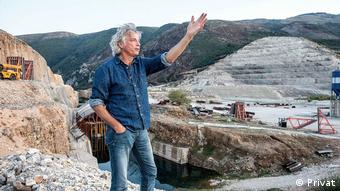
“Privatization of welfare” – Ulrich Eichelmann from River Watch
As an example, acorn man called the river Vjosa, which flows into Albania in the Adriatic sea. Along the Vjosa 38 dams. In Albania there are more than 500, throughout the Balkans, 3.000, 91 percent of which Mini-hydro power plants. And a third more than in regions, which are actually designated as protected areas, such as in the national parks in Macedonia’s Mavrovo, along the Bosnian-Croatian Una river, along the river Krka in Croatia or the Tara in Serbia.
How do these projects financially?
“Anyone who can get enough money, you can be the owner of a Mini-hydropower plant”, explains Jelena Ivanić and adds that the investment after 7 years is starting to pay off. The funding runs through state subsidies and loans from financial institutions such as the world Bank, the European Bank for reconstruction and development EBRD or the European investment Bank, Societe Generale from France, Uni Credit, from Italy, Raiffeisen and Erste Bank from Austria, and KFW from Germany.
“These institutions to Finance hydropower projects, because they hold the energy derived for renewable. But energy from water power plants is not renewable, because the destroyed nature is not renewable,” says Eichelmann. Together with the Outdoor company Patagonia, the Blue Heart campaign has launched a Petition against the funding of dam projects in the Balkans, which was passed in June in London at the EBRD. More than 120,000 people have signed it.
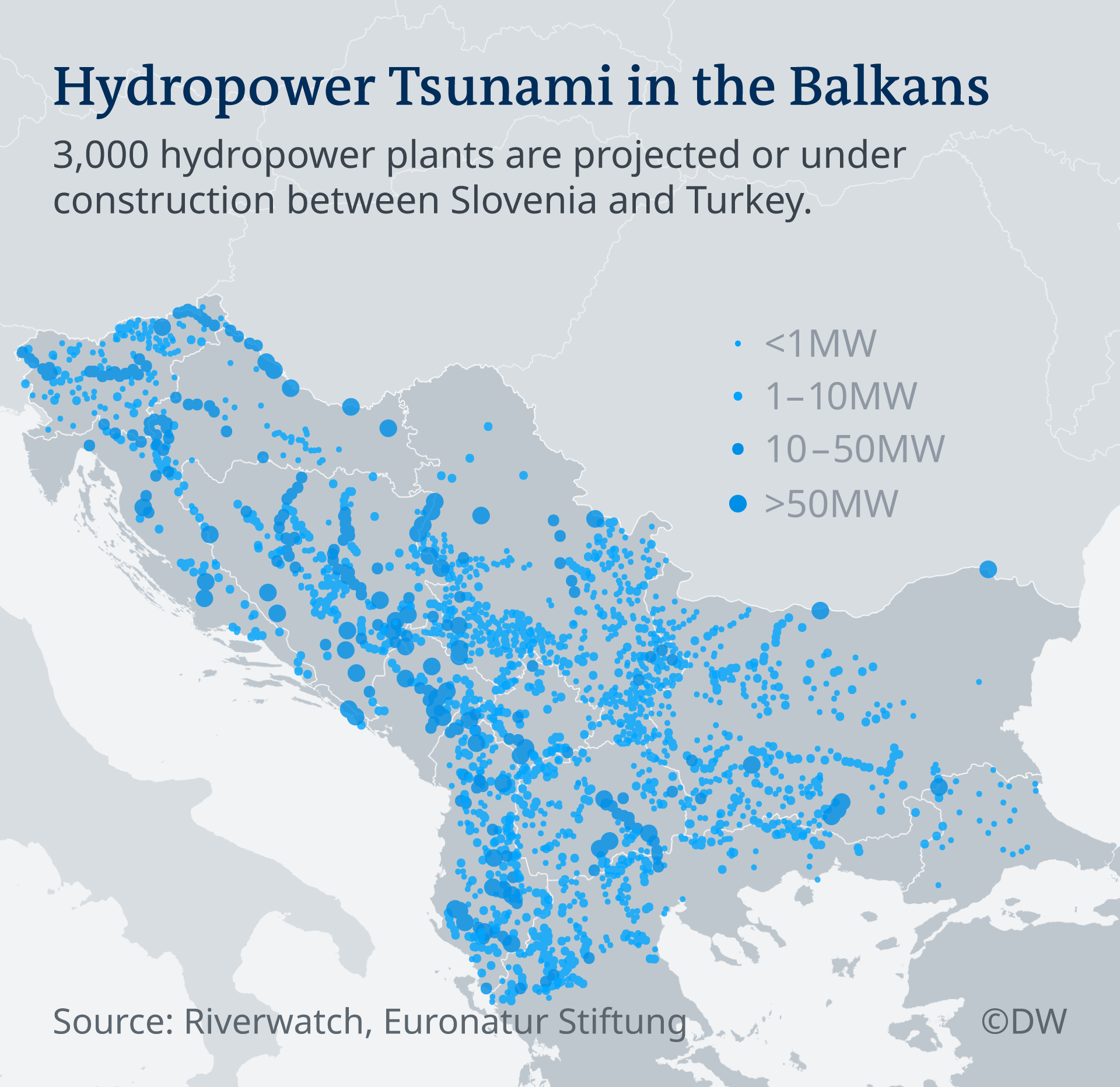
Hydropower plants in the Balkans
In addition to the natural destruction of water power plants is not an argument against the construction of the Mini that they are economical. “At the moment, there are very a lot of energy, the price for a kilowatt-hour is three Euro cents”, so Eichelmann. “This is so low, that nobody would have anything for this build. Here, governments are coming to the game who want to support renewable energy sources and thus subsidise. In Bosnia 9-10 cents per kilo the price will be says while watt hour – three times as much as the market. Means: Without the subsidies no one would build a dam.”
“There is no other place where lobbyists could go”
The Balkans is a politically unstable Region, in the company’s money with projects, can’t do that, which would be possible in the EU. The rivers in the Rest of Europe are almost building complete with dams. There is no other place, where water power could lobbyists are going to make even more money,” – said in the Film “Blue Heart”, which was financed by Patagonia and all over the world start (https://blueheart.patagonia.com/intl/de/film)
On the question of how such projects could be the rapprochement of the Balkan States to the EU, hinder, answers acorn man: “From the point of view of the EU, the nature must be protected in the Balkans if these countries want to be a part of the EU. But this is only half the truth, because there are other interests in the EU, to ensure that by the year 2020, 20 percent of the sources of energy in Europe, renewable – at any price. Your opponents are environmentalists, but these are too weak to defeat the investors,” the expert said. “The European Commission must be convinced that the rivers in the Balkans are the most valuable treasure of Europe.”
Until then, the new Mini-hydropower plants are being planned and built. One of the main investors in the Bosnia-born star basketball player Mirza Teletović. “He probably thinks that his investment is a help for the local community. But you can hurt her only,” warns Jelena Ivanić from Banja Luka.